QuestionHow do I phantom this? I have an iguana named spike and she is laying eggs and she is the only one I have she only stays in her cage and she has laid like 13 eggs she hasn't been any where and it kinda freaks me out. What is going on with spike why is she laying eggs?
AnswerJoycelyn,
No need to think Spike is a magician, she is going through her annual mating season. It is a very normal thing for female iguanas to develop infertile eggs and lay at about the same time every year. Because Spike has not had the potential to mate, it is safe to assume the eggs contain no embryo and will not hatch. There are some very important factors to consider as you deal with her egg laying and it is important to watch for signs that she has become eggbound because this can and is a fatal condition if not treated with an emergency spay. This usually happens in iguanas who had been cared for poorly or who have suffered from metabolic bone disease.
Anyhow, here are some important facts from anapsid.org
- The number of eggs varies from 12-40+, with older/bigger ones laying more. First year layers can lay 18 or so, so don't be fooled by the size of the iguana.
- It is important to boost calcium intake during this time. You can do this by adding slightly more calcium supplement to her food, or giving her the supplement more often. During pregnancy, the additional calcium is used in the development of the eggs. If insufficient calcium is present in the diet (or through insufficient or lack of UVB or too much phosphorous) the body will "mobilize" calcium from the bones. This will result in weakening the bones through loss in density, in other words, cause metabolic bone disease.
- Females need as much exercise (primarily climbing) as possible to ensure smooth laying. One of the most common problems with females in captivity is egg binding resulting in C-section and hysterectomy. Many vets actually recommend spaying females routinely to prevent the problem. It is, of course, less costly for you and less stressful for the ig if she can just get the exercise she needs. This is probably the best argument for keeping igs free roaming or housing them in very large (wide AND tall) enclosures with lots of branches and other climbing apparatus.
- Females dig burrows underground and excavate a small cavern in which they lay their eggs. They then back out and back fill the cavern and burrow. You need to recreate the digging area by making an egging box, a place for her to dig a burrow and lay her eggs in a cavern. Depending upon the size of the iguana, two huge kitty-litter pans, placed rim-to-rim and duct taped together, with an access hole cut in one end of the upper pan, will do the trick for a smaller iguana (say 10-12" svl).
- Needless to say, you need to fill the egging box with the proper digging medium before taping it shut. What you need to achieve is soil which you can easily push but which will stay in place when you take your hand away.
Eggbinding
Egg-binding or distocia occurs when an iguana contains calcified eggs in her abdominal cavity that she cannot or will not lay naturally. If these eggs remain in there, they can break and cause deadly infection, and they will eventually begin to decay, which will also cause deadly infection. Egg-binding is very serious and is life-threatening. It would be wise for you to take your iguana to a vet and have an x-ray to check and see if all of her eggs have been laid or if she has retained any. If she has, they need to come out.
Once the female begins--but does not complete--laying or birthing, treatment should be started within 48 hours. Females will sometimes complete laying or birthing after a pause but generally within the 48 hour window. There are several options for extracting the remaining eggs...to include hormone inducement, manual removal & surgery. It is imperative to see a vet if you suspect the iguana has more eggs but has stopped laying.
Thank you and please follow up with any further questions,
Sara J Gwerder
President
Raptor Rescue Iguana Sanctuary
Shreveport, LA
www.RaptorRescue.org
Good Diet + UVB Radiation + Proper Temperatures + Set Daily Schedule = Healthy + Happy Reptile

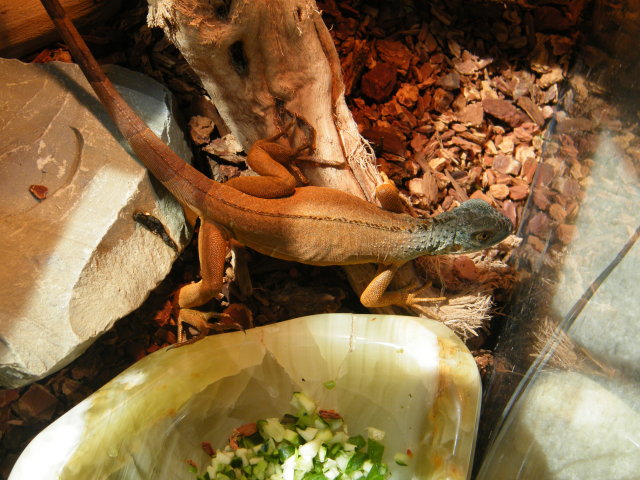 thanks
Question
marley
thanks for all the info. a giveaw
thanks
Question
marley
thanks for all the info. a giveaw
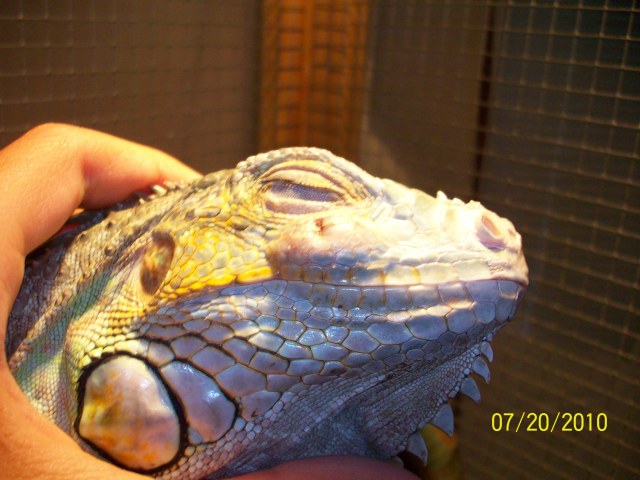 bump on my iguanas face
Question
kiwis bump
please help my iggy has a large bum
bump on my iguanas face
Question
kiwis bump
please help my iggy has a large bum
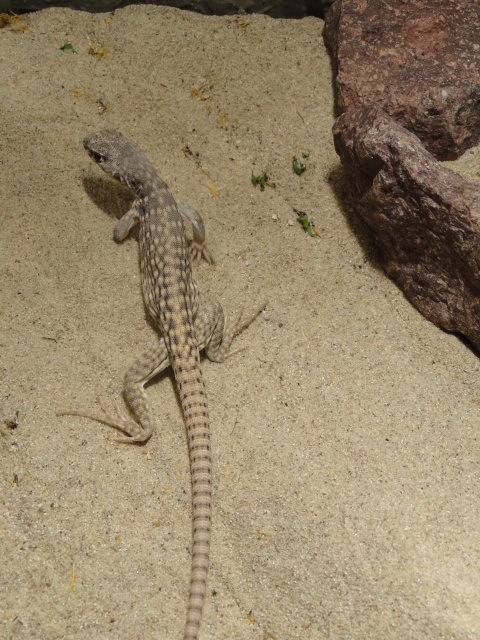 Desert Iguana Sick
Question
D. Iguana 7/3/10
I know you mention not to ask
Desert Iguana Sick
Question
D. Iguana 7/3/10
I know you mention not to ask
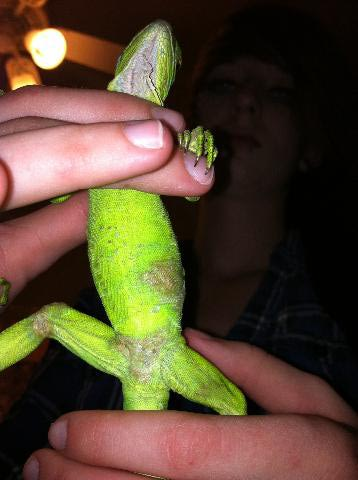 Need help!
Question
Serious problem
Mt iguana has developed
Need help!
Question
Serious problem
Mt iguana has developed
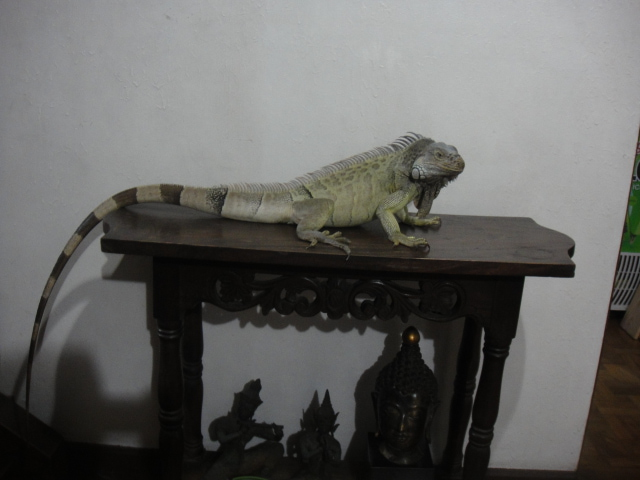 Sick iguana
QuestionIggy
QUESTION: Hi Diane.
IGGY, m
Sick iguana
QuestionIggy
QUESTION: Hi Diane.
IGGY, m